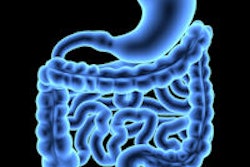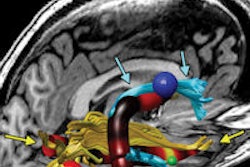Tuesday, December 2 | 10:50 a.m.-11:00 a.m. | SSG03-03 | Room E352
MRI may be a suitable first-line imaging test to diagnose appendicitis in the general population, according to this study from the University of Wisconsin School of Medicine and Public Health.The researchers, led by Dr. Michael Repplinger, an assistant professor in the departments of emergency medicine and radiology, found that accuracy was similar between their MRI protocol and CT for the diagnosing appendicitis.
"Our findings suggest that MRI may be used as a primary imaging modality for the diagnosis of appendicitis in the general population," Repplinger said. "By using MRI instead of CT, we would avoid exposing patients to ionizing radiation and the subsequent potential for radiation-induced malignancies."
The prospective study included 93 patients (mean age, 33.3) who presented to the emergency department with abdominal pain between February 2012 and July 2013.
Willing patients underwent CT and MRI, with three attending radiologists interpreting both sets of images independently to determine characteristics of the appendix, the likelihood of appendicitis, and possible alternative diagnoses. The time required to interpret the images was also noted.
Sensitivity and specificity were greater than 90% for unenhanced MRI/diffusion-weighted imaging, contrast-enhanced MRI, and CT. The mean time to read the MR images was 4.5 minutes, compared with 2.04 minutes for CT.
"Our goal was to show noninferiority of MRI for the diagnosis of appendicitis when compared with CT," Repplinger said. "As an added benefit, MRI was able to display pelvic pathology, such as ovarian cysts, torsion, etc., more clearly than CT, as corroborated by pelvic ultrasound."
The results scheduled for presentation at RSNA 2014 are a preliminary analysis; the total study cohort includes 225 patients.
"We plan to complete the remainder of the analysis and report our findings next year," Repplinger added. "Moving forward, we will conduct a similar study in community hospitals and ultimately hope to conduct a multicenter study, establishing the diagnostic accuracy of our novel MRI protocol in diverse settings."




















